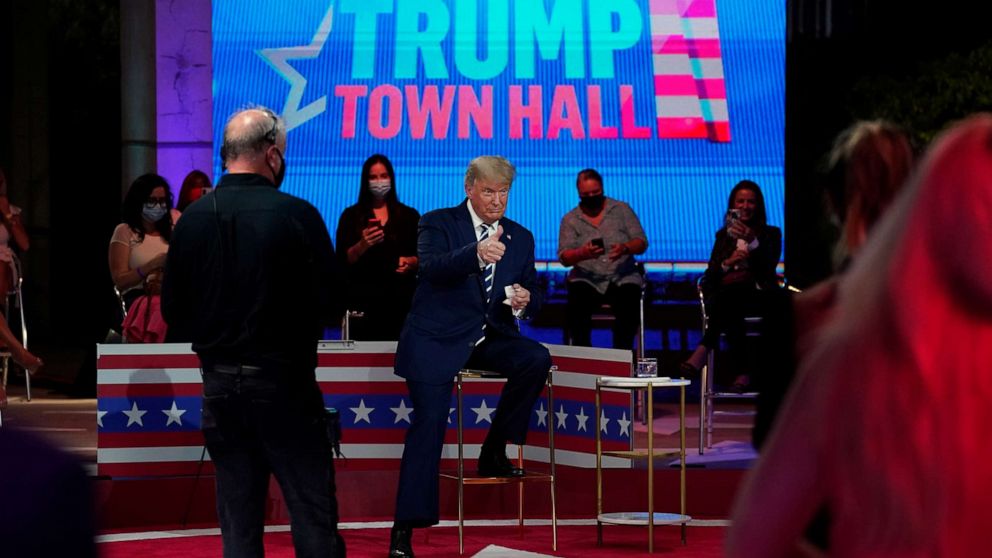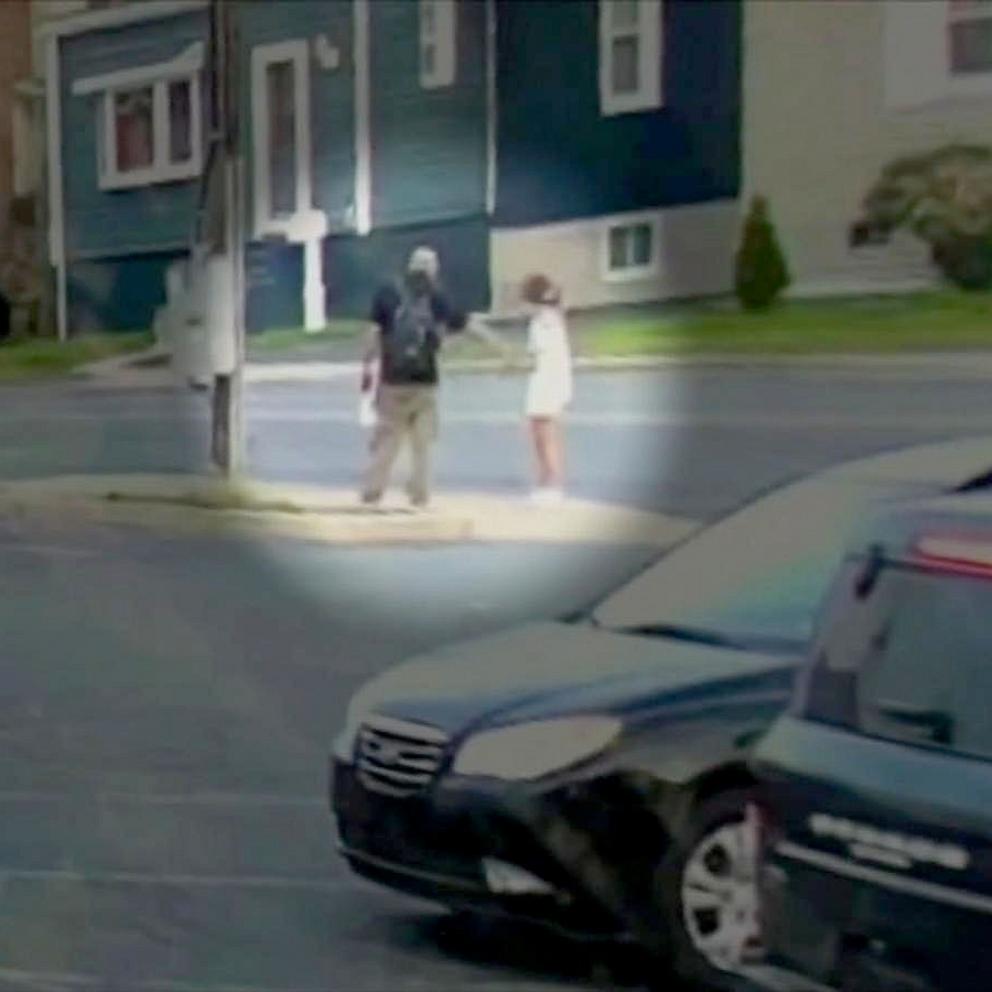President Trump does not denounce QAnon, baseless Osama bin Laden conspiracy theory at town hall
President Donald Trump chose not to condemn the far-right fringe culture known as QAnon, which the FBI has labeled a potential domestic terror threat, and instead partially praised the movement during a town hall with NBC News on Thursday night.
The president also defended retweeting a baseless Osama Bin Laden conspiracy theory and continued to dodge specifics on his overall health following his diagnosis with COVID-19.
Trump appeared for his solo town hall in Miami after saying he would not participate in a virtual debate format against Democratic presidential nominee Joe Biden, which led the Commission on Presidential Debates to cancel the event. Biden appeared at a town hall with ABC News in Philadelphia on Thursday at the same time.
Many questions still surround the president's health during and after his treatment for COVID-19 at Walter Reed Medical Center beginning Oct. 2. Dr. Sean Conley, Trump's White House physician, has refused to say whether the virus caused any damage to the president's lungs, if he had pneumonia or when he last tested negative for coronavirus before his positive test.
Asked by moderator Savannah Guthrie if his medical team ever made him aware of signs of pneumonia, Trump initially said "no," then revealed that his lungs "were a little bit different," and "perhaps infected," which was not previously known.
"I didn't do too much asking," Trump said. "I really felt good. I didn't have much of a problem with the lungs. I did have a little bit of a temperature. Obviously I felt there was something missing."
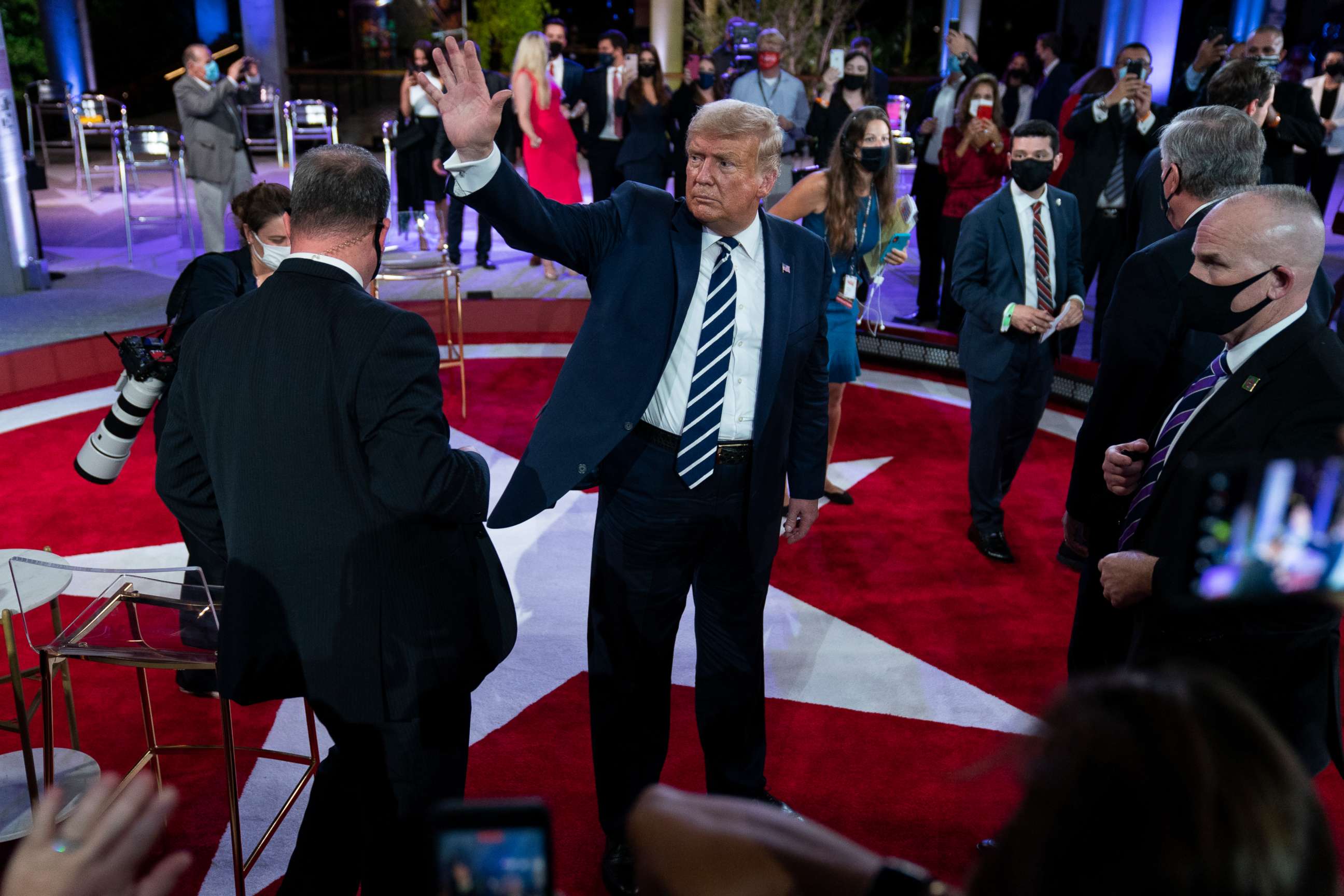
The White House has also repeatedly refused to say when the president last tested negative for the coronavirus prior to his diagnosis. Trump could not definitively answer when he last remembered having a negative test before his Oct. 1 diagnosis in a back-and-forth with Guthrie.
"Well, I test quite a bit. And I can tell you that before the debate, which I thought it was a very good debate, and I felt fantastically, I was -- I had no problem before," he said.
Pressed by Guthrie if he was tested the day of the first presidential debate on Sept. 29 in Cleveland, Trump said he didn't know because he tests "all the time."
"I don't know, I don't even remember. I test all the time," he said. "But I can tell you this, after the debate, like, I guess, a day or so, I think it was Thursday evening, maybe even late Thursday evening, I tested positive. That's when I first found out."
The debate commission required candidates to test negative before the event, but used an honor system and did not request proof of a negative test.
Trump was asked four times by Guthrie if he had been tested prior to the debate, but would not clearly answer the question.
"Possibly I did, possibly I didn't," Trump said.
The president appeared combative for the majority of his town hall, at points telling Guthrie "you always do this" and "what's your next question?" He even suggested that he was receiving a more severe line of questioning than Biden, who sat for a town hall with the network on Oct. 5.
At one point, seemingly frustrated with the line of questioning, Trump dismissed Guthrie, saying, "You’re so cute."
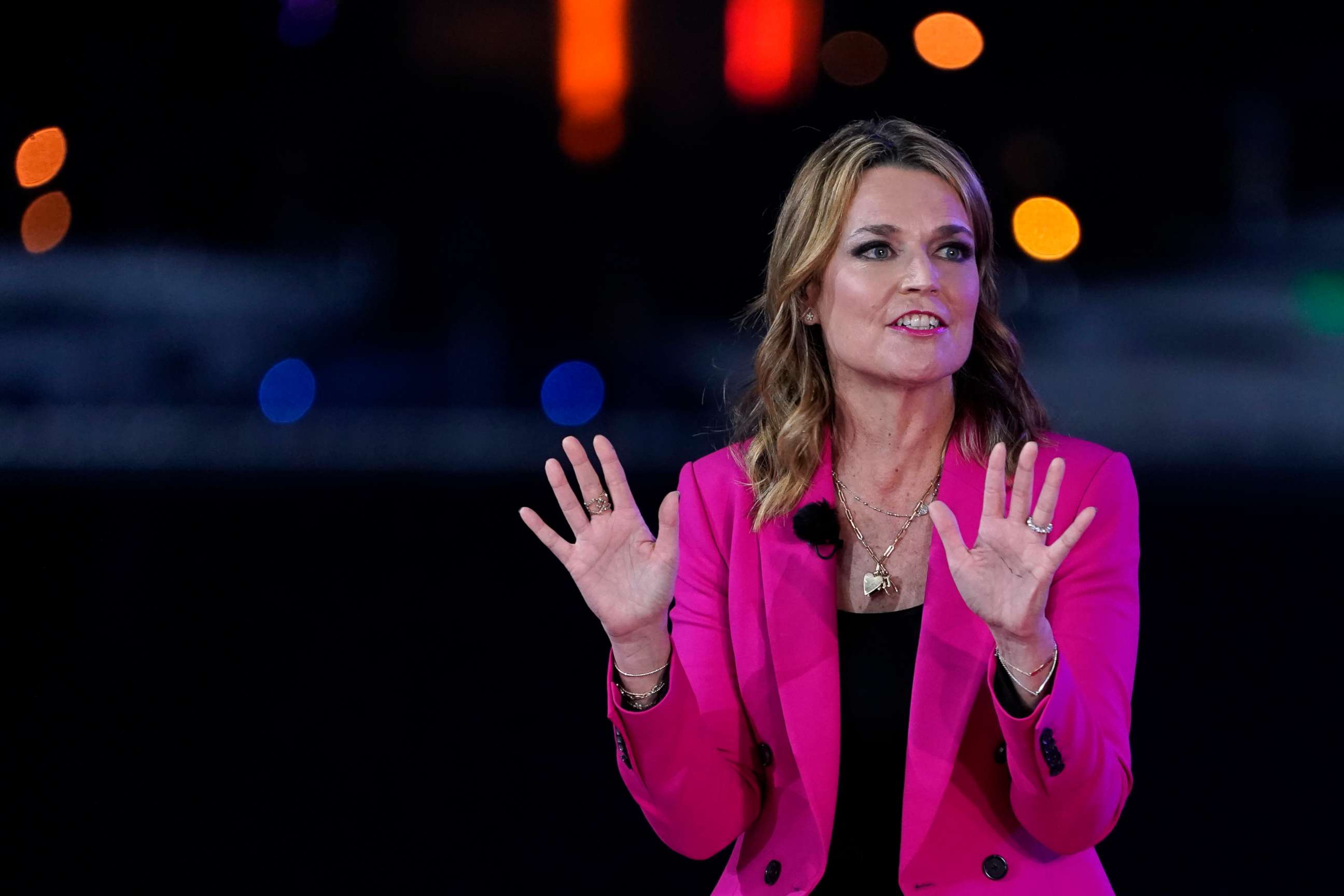
Trump seemed especially agitated when Guthrie brought up a moment from the first presidential debate when Trump did not condemn white supremacists on stage, but did days later. She asked why he initially seemed "hesitant to do so."
"Hesitant? Here we go again," he said. "Every time -- in fact my people came, 'I'm sure they'll ask you the white supremacy question.' I denounce white supremacy."
The president was then given an opportunity to "once and for all denounce QAnon in its entirety," and not only did the president refuse to denounce the group but he again praised the far-right extremist conspiracy theory for being "very strongly against pedophilia."
"I know nothing about QAnon," Trump said. "I know very little. You told me, but what you told me does not necessarily make it fact. I hate to say that. I know nothing about it. I do know they are very much against pedophilia, they fight it very hard. But I know nothing about it."
The president has repeatedly refused to condemn the QAnon conspiracy, despite the FBI declaring conspiracy theory movements like QAnon to be potential domestic terror threats. In an August press briefing, he said they "love the country" and appreciated their backing.
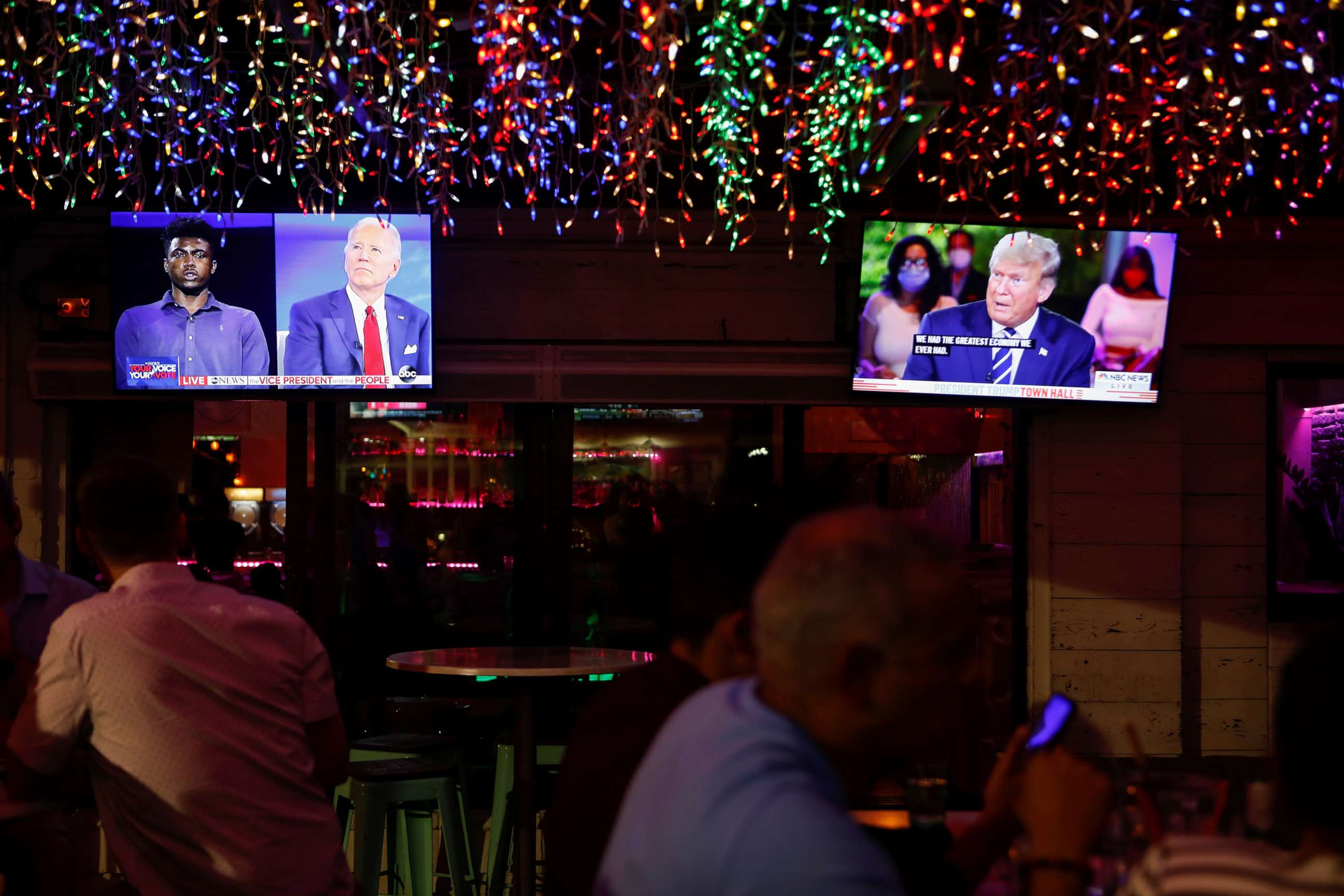
Trump also refused to denounce a false conspiracy theory he retweeted this week that claims Biden "had SEAL Team 6 killed" to cover up the supposedly failed assassination of bin Laden. Trump defended retweeting the conspiracy when asked Thursday night, claiming, "That was a retweet. That was an opinion of somebody."
The president has been taking considerable heat since the retweet from the Navy SEAL community, including from the former SEAL who has publicly said he killed bin Laden in the 2011 raid ordered by President Obama. Robert O'Neill called out the president in a series of tweets Tuesday.
"Very brave men said goodby to their kids to go kill Osama bin Laden. We were given the order by President Obama. It was not a body double. Thank you Mr. President. Happy birthday @USNavy," O'Neill tweeted, who supports the president and has appeared on Trump campaign digital shows with Donald Trump Jr.
Trump also dodged confirming whether he has $421 million in debt coming due in the coming years -- as The New York Times has reported based on the president's tax records -- but went on to minimize that amount as being akin to a "peanut."
"When you look at vast properties like I have, and they're big and they're beautiful and they're well located, when you look at that, the amount of money, $400 million, is a peanut, it's extremely underleveraged and it's leveraged with normal banks. Not a big deal," Trump said.
Pressed repeatedly on whether he owes that amount, Trump never confirmed it -- but did not deny it either.
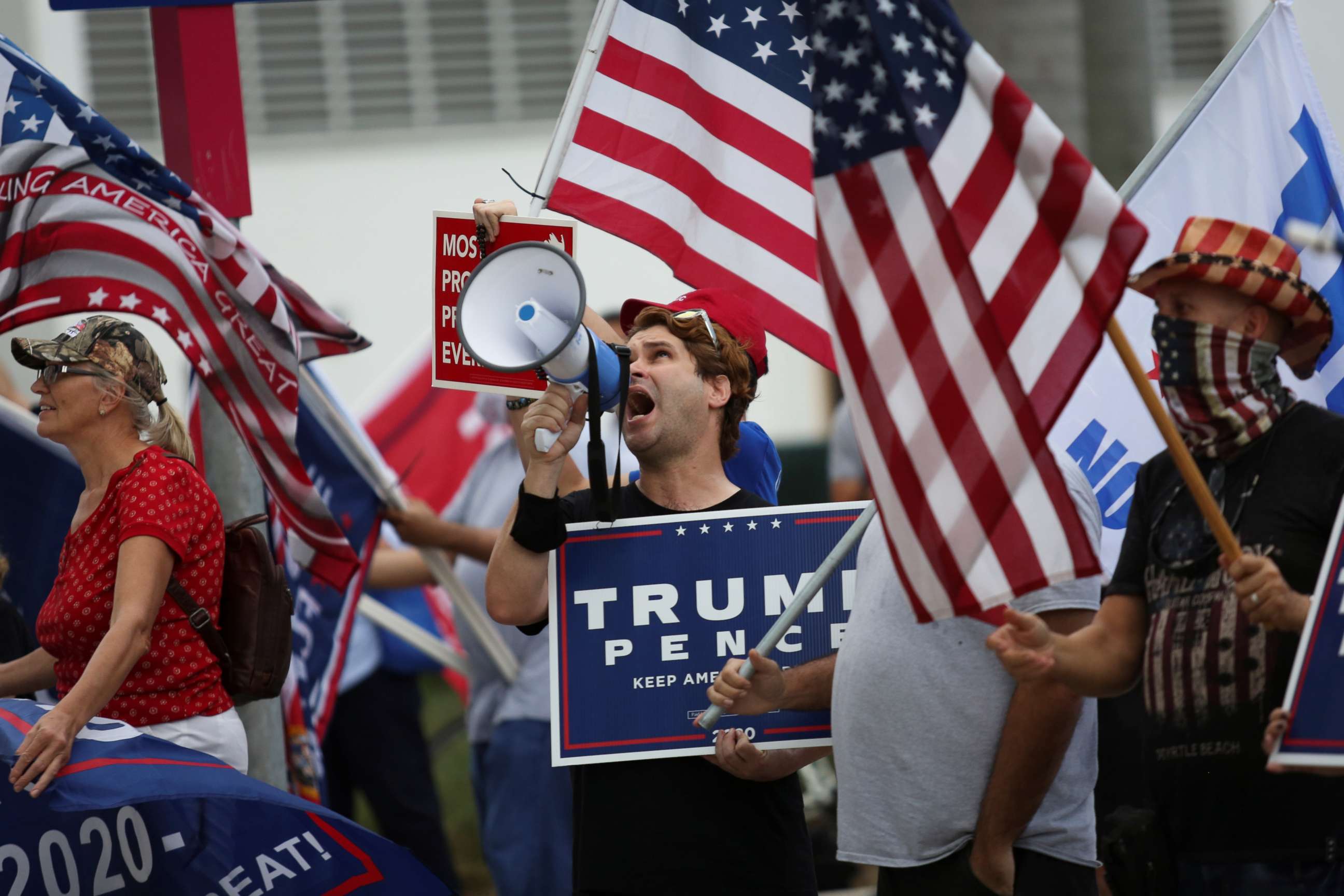
"Are you confirming that, yes, you do owe some $400 million?" Guthrie asked.
"What I'm saying is it's a tiny percentage of my net worth," he said.
Asked if he owes money to any foreign entities, Trump said none that he is aware of, but then seemed to hedge, suggesting it was possible.
"Not that I know of, but I will probably because it's so easy to solve. I will let you know who I owe whatever small amount of money. I want to say two things. No. 1, it's a very small amount of money. No. 2, it's very straight. Very, very straight."
ABC News' Jordyn Phelps contributed to this report.
